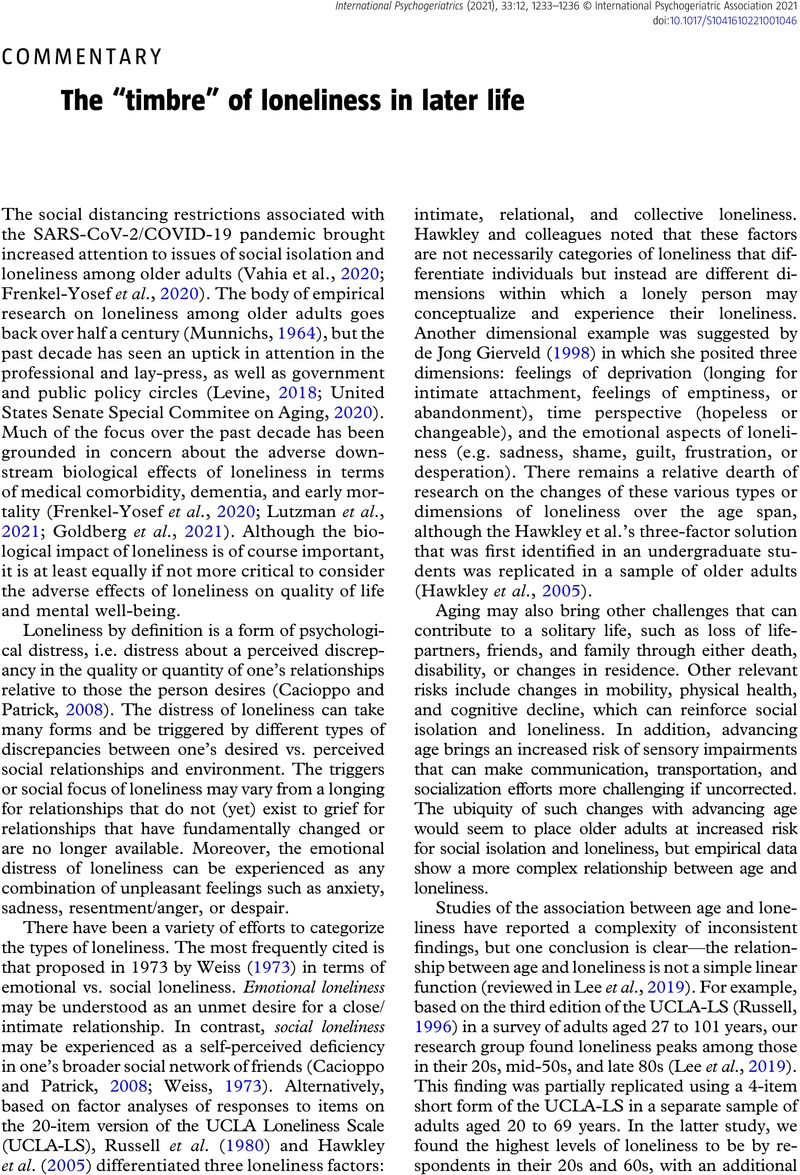Crossref Citations
This article has been cited by the following publications. This list is generated based on data provided by Crossref.
Palmer, Barton W.
Hussain, Mariam A.
and
Lohr, James B.
2022.
Loneliness in Posttraumatic Stress Disorder: A Neglected Factor in Accelerated Aging?.
Journal of Ageing and Longevity,
Vol. 2,
Issue. 4,
p.
326.





